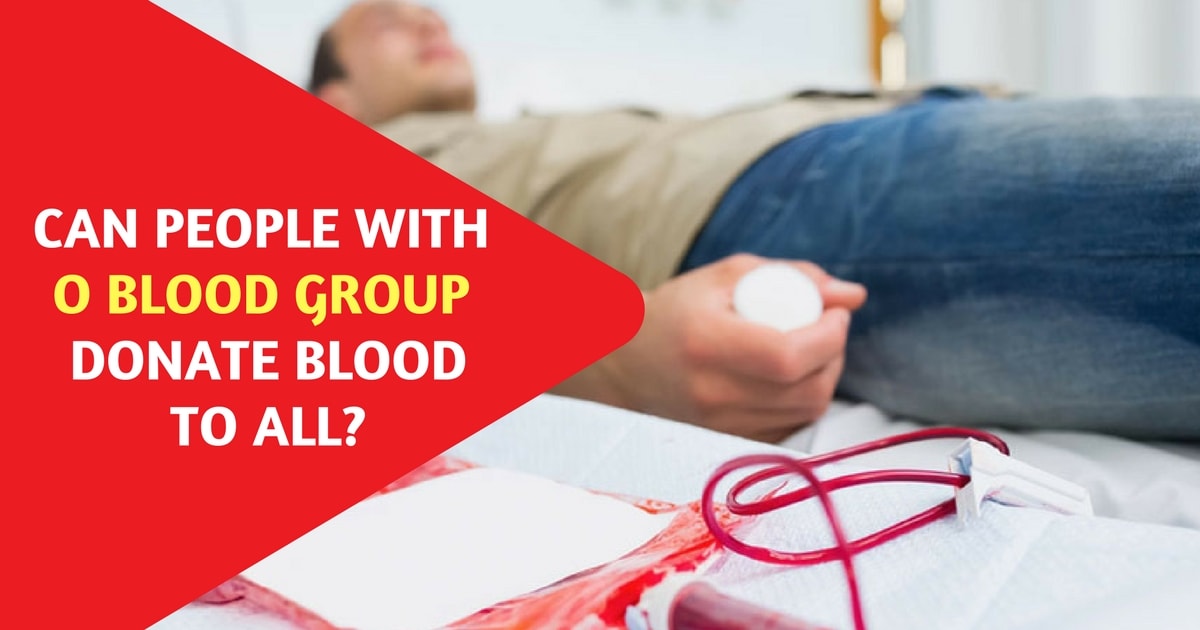Can People With O Blood Group Donate Blood to All?

Have you seen people in critical medical conditions battling with life and looking for blood as per their blood group types? All such medical emergencies arise because of the differences in the blood groups humans are born with. Human bodies are capable of producing blood for its complex inner functions from the marrow cells. But in cases when they cannot produce enough blood on their own or when ample amount of blood is lost, blood is transfused externally. We were told that the blood group “O” is a universal donor and hence can give blood to anyone. Is this true? Not really! Let us see why and how.
More about Blood Group O
People with blood Group imply that they do not carry the antigens A or B. Since they do not have these antigens, they could technically give blood to A, B and AB groups apart from their own group of O. This was the reason the Blood Group O was referred as ‘Universal Donor’. But there is more to it. There is another antigen called Rh Factor which determines if the blood group is positive or negative. Those who had this Rh factor were “Positive” and those who did not have were “Negative”. Hence there are totally eight blood groups.
Going by this logic, someone having a blood group of O positive cannot give blood to anyone whose blood group may be A-, B- , AB- or even O-.
So is O Negative Blood Group the true Universal Donor?
Technically speaking, “Yes”. O- blood group can be truly called a universal donor blood group. Also biochemically speaking only people with O- blood have neither of the 3 antigens (A, B and Rh factor) and hence they are said to be compatible to other blood group types. This gives people with O negative blood group the opportunity to serve others with blood donation. But there is a catch.
Reasons inhibiting O Negative Blood Group to be Universal Donor
- But in the entire world less than 5% of the population has O- blood group. In India it is even lesser. It is estimated that only 1.43% of the Indian population has O- blood group. So the probability of universal donor donating blood is pretty less.
- A miniscule population reacted to O- though biologically they did not contain the 3 antigens (A, B and Rh factor). Researchers then found that there are other antigens apart from the big three which sometimes are causing these reactions.
Actually speaking in real life scenario people are transfused only with blood groups of the same group to avoid complications and medical risks. So actually speaking there is no universal donor or recipient when it comes to blood transfusion.
Latest posts by Jithya (see all)
- 8 easy ways to reduce the pregnancy weight - April 25, 2018
- 8 warning signals of mental illness - April 18, 2018
- 12 habits that are really bad for our heart - March 20, 2018
